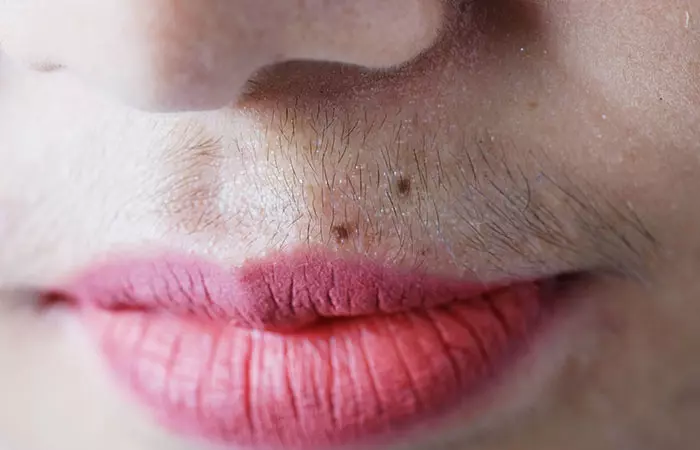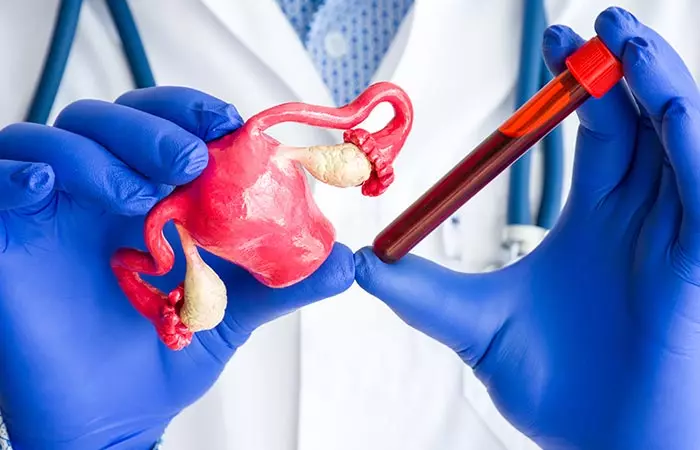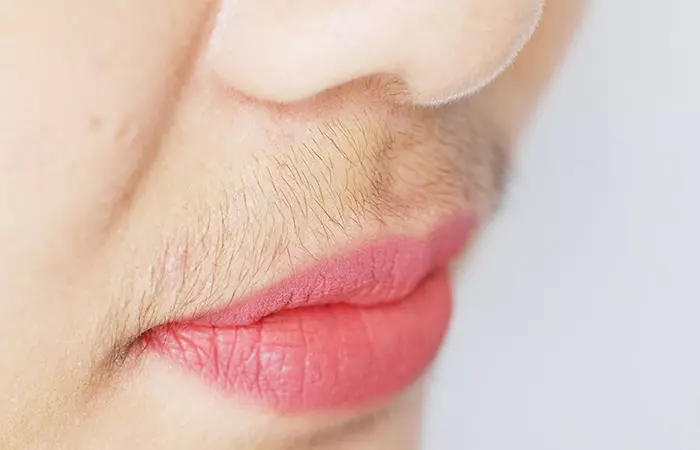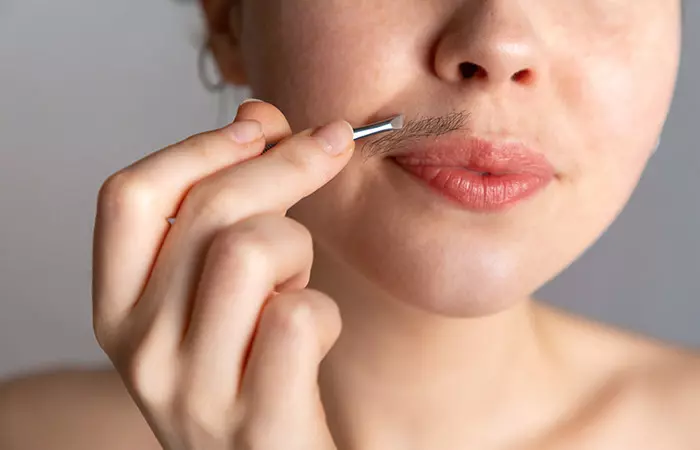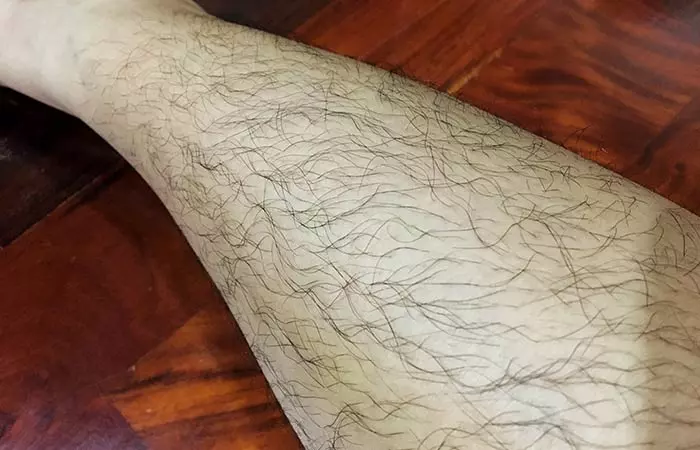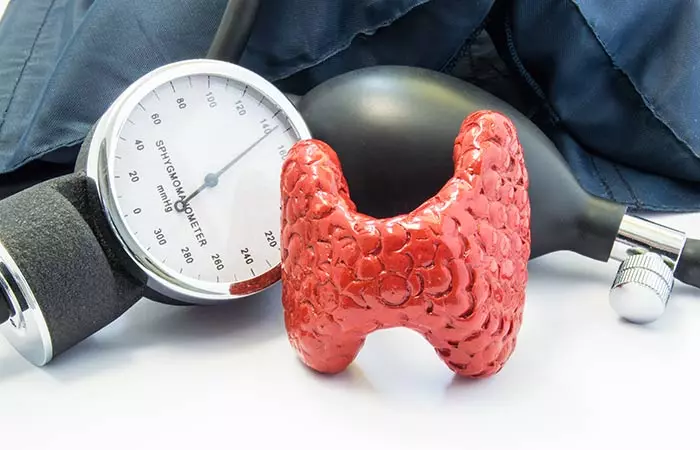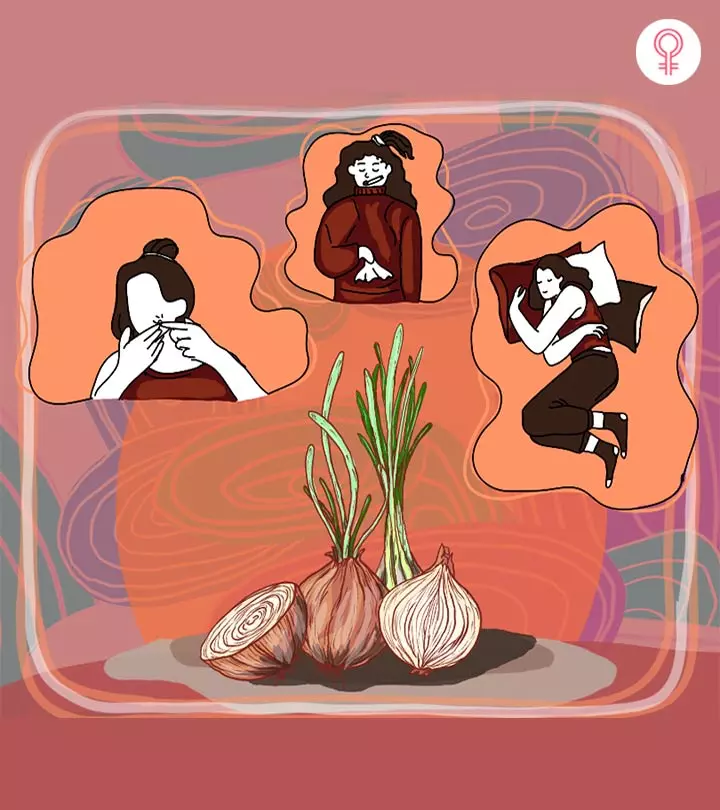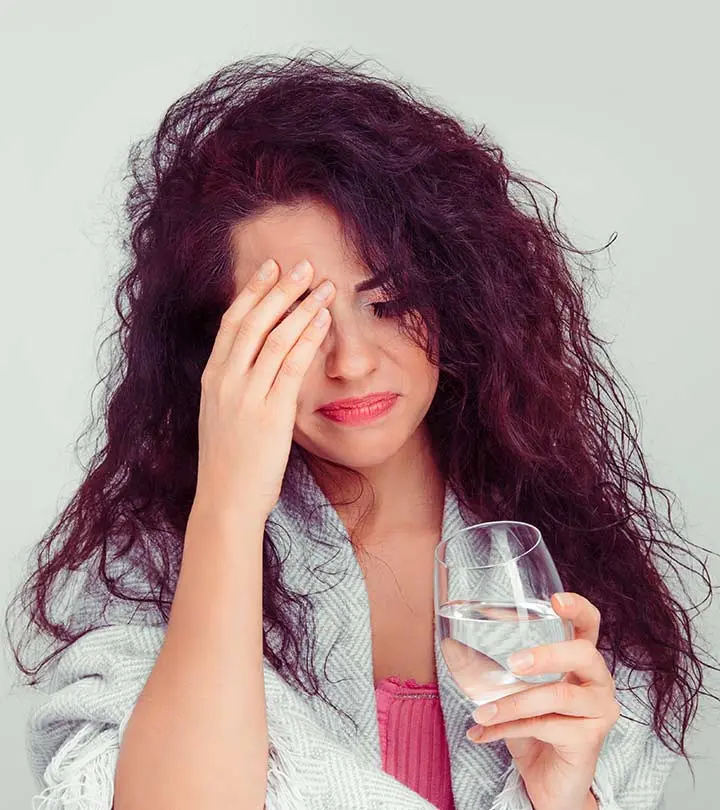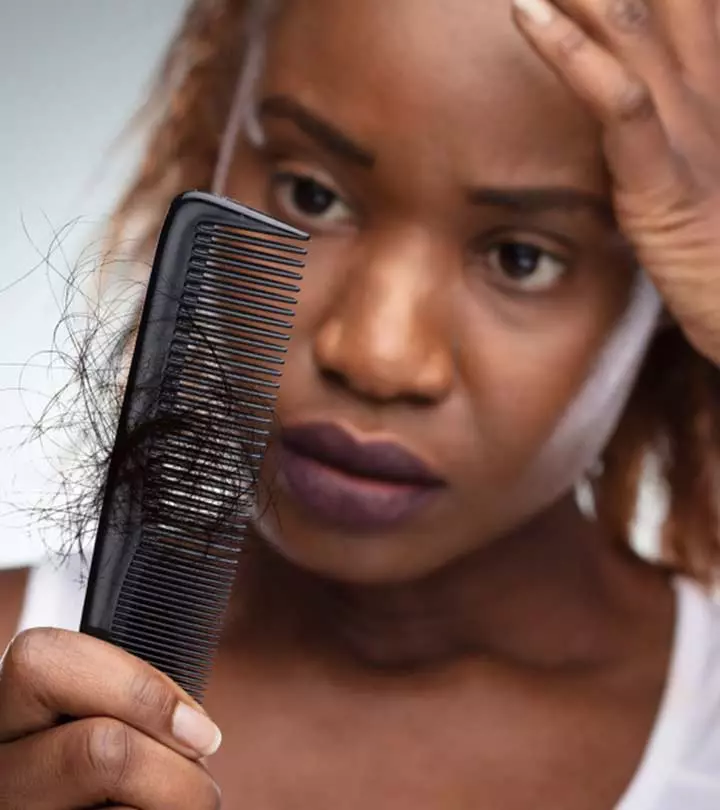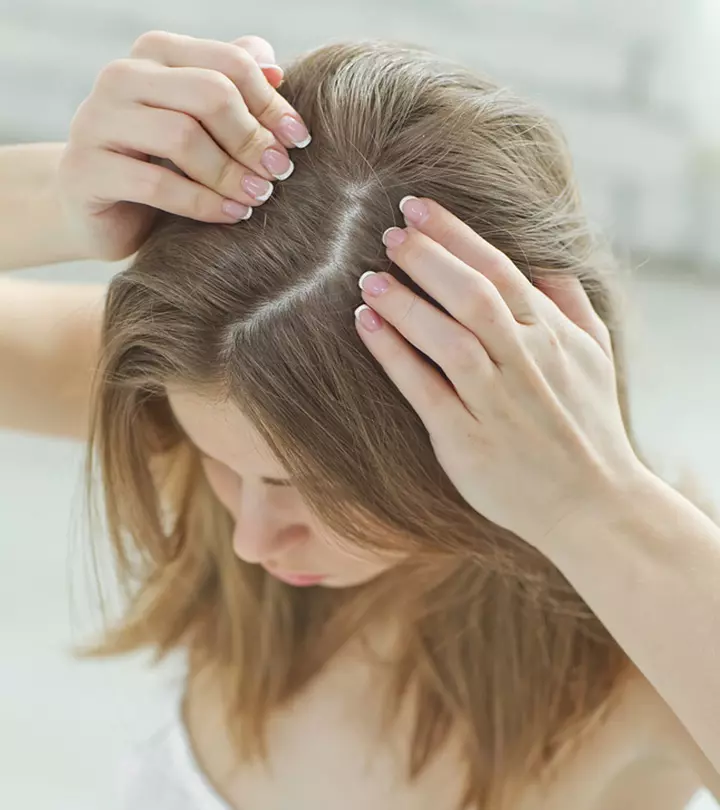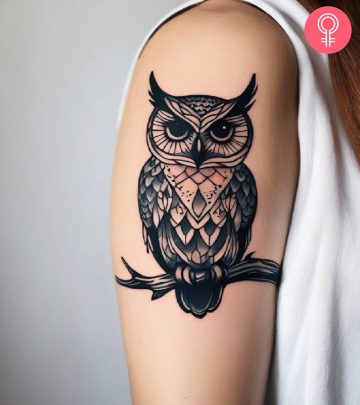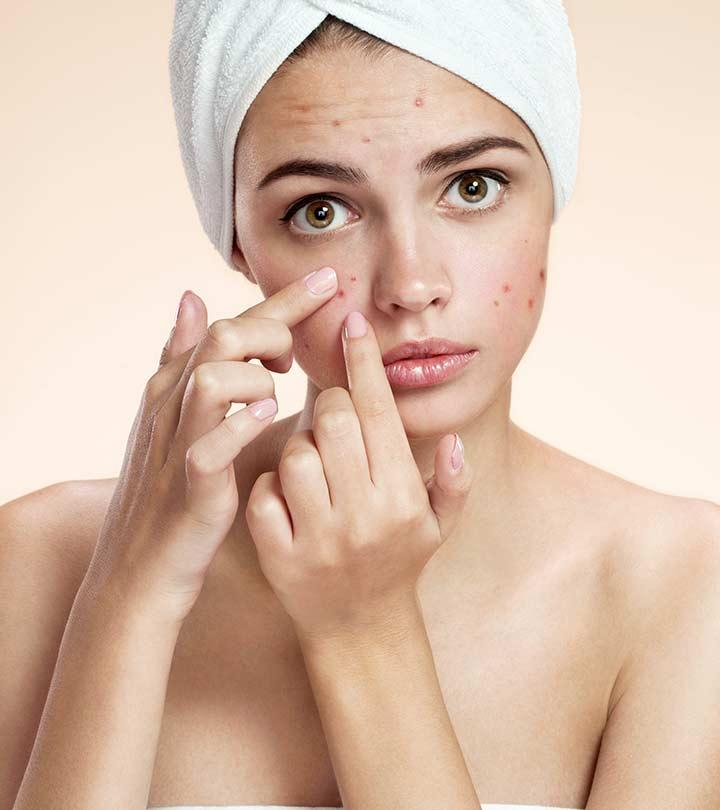What Excessive Hair On Different Body Parts Says About Women’s Health
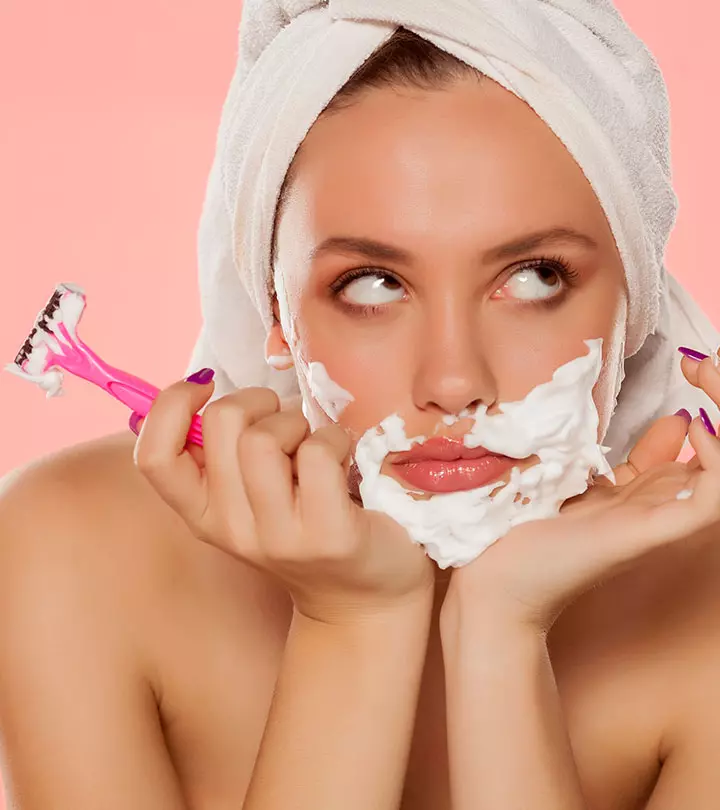
Image: iStock
Body hair is something natural and we all have it despite the continuous efforts to remove them by waxing, shaving, using hair removal creams and so on. And it’s a personal choice whether you want to leave your body hair as it is or get rid of it. But you need to keep a close eye on the growth of your body hair because it says a lot about your health. Let’s start by introducing you to the two types of body hair we have— vellus and terminal. Vellus hair is the tiny, thin hair that covers our whole body and terminal hair is the thick one that grows once the puberty kicks in. Terminal hair growth is greatly influenced by hormonal changes which is why they need your attention.
Excessive growth of terminal hair in areas like face, chest, and back where men typically grow hair is called hirsutism. It is more than just a biological issue since it also affects the confidence and emotional wellbeing of a woman (1). If you’re experiencing this medical condition, there’s no need to worry because with the right medical attention you can get rid of it. Now, let’s explore the various reasons due to which excessive body hair growth may occur in women.
1. Family History And Ethnicity
If you’re noticing thicker hair growth on your chin and upper lip areas, check the old photographs of your mother and grandmother because they might have had it too! Family history plays an important role in the occurrence of hirsutism. This is because certain causes of hirsutism like congenital adrenal hyperplasia and polycystic ovary syndrome are health issues that run in families. Hirsutism can also be influenced by your ethnicity. Women who are of the Mediterranean, South Asian, and Middle Eastern ethnicities are more likely to experience hirsutism than women of other ancestries (2).
2. Polycystic Ovary Syndrome (PCOS)
PCOS is a hormonal disorder that affects women in their reproductive ages. During this health condition, the levels of androgen, a male hormone, tends to increase. This is the reason why women who are diagnosed with PCOS also face hirsutism (3). In a study conducted on Indian women, 70% of those who had hirsutism were also suffering from PCOS (4). You may also experience acne and male-pattern baldness during this period. If you’re having irregular or delayed periods while experiencing excessive hair growth on your face and body, get yourself checked for PCOS. It can be treated with the right medication and exercises.
3. Increased Testosterone
Testosterone is the male reproductive hormone. But it’s also present in women at very low levels. Sometimes, our body produces more testosterone through adrenal and/or ovarian sources which leads to excessive hair growth (5). This issue can be solved with the help of medicines that will help bring back the normal level of testosterone in the body.
4. Hyperprolactinemia
Prolactin is the hormone in our body that is responsible for lactation after childbirth. If you have hyperprolactinemia, the level of prolactin in your body shoots up and causes an unhealthy hormonal condition. According to research, women with hyperprolactinemia can experience hirsutism and they might even lactate without having a baby (6).
5. Steroid Cell Tumour
Ovarian steroid cell tumors are a very rare type of tumor that affects women. These tumors can result in rapid-onset hirsutism, and menstrual irregularities, and virilization (7).
6. Thyroid Disorders
Issues related to the thyroid glands can have a deep impact on the onset of PCOS. And like we discussed above, PCOS can be one of the reasons why a woman may experience excess growth of body hair. This means that thyroid issues have an indirect but important connection with abnormal body hair growth in women. So, if you have thyroid issues, get treated as soon as possible before it leads to PCOS and hirsutism (8).
7. Medication
If you’re experiencing excessive body hair growth after you started taking a particular set of medicines, you need to alert your doctor. Certain anti-depressants, sleeping medications, and hormonal pills with estrogen and testosterone are a few examples of medications that might mess up normal body hair growth (9).
Diagnosis and Treatment Of Hirsutism
Your doctor will check the level of certain hormones like testosterone and estrogen in your blood. You may have to undergo a CT scan to check your ovaries and adrenal glands for cysts and tumors. Your doctor may ask you to rely on waxing, threading, or shaving if you’re just having mild hirsutism. However, if the underlying cause for the excessive hair growth is serious, you may have to get treated for that. Hair removal therapies combined with oral contraceptives, anti-androgens, and topical creams will help you recover from hirsutism and also the underlying cause (10).
If you are bothered by your body hair too much, you can always ask your dermatologist about the possibilities of electrolysis or laser procedures. With the help of these methods, you can say goodbye to unwanted facial hair forever. Also, remember that body hair is always normal and it shouldn’t affect your confidence no matter what.


